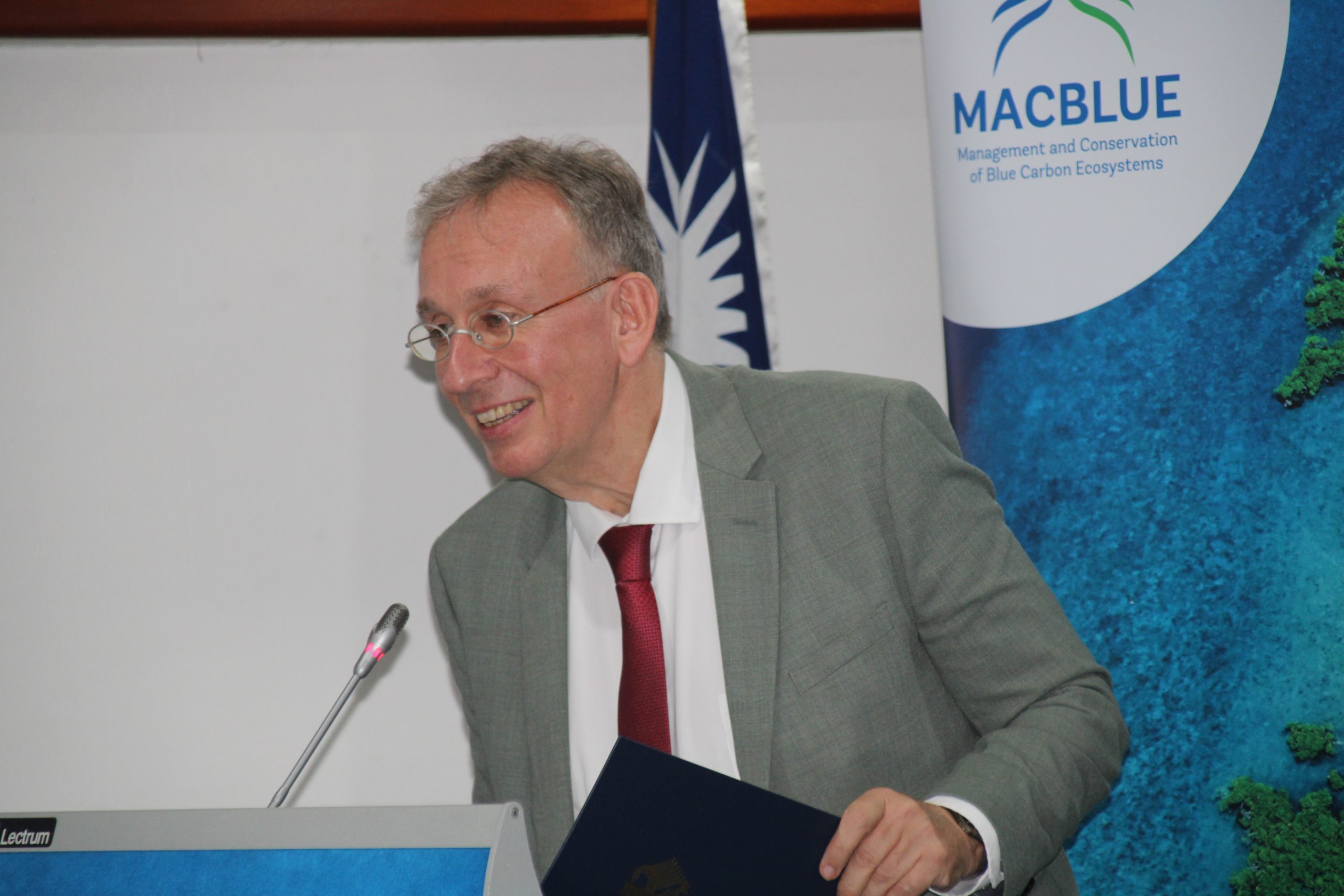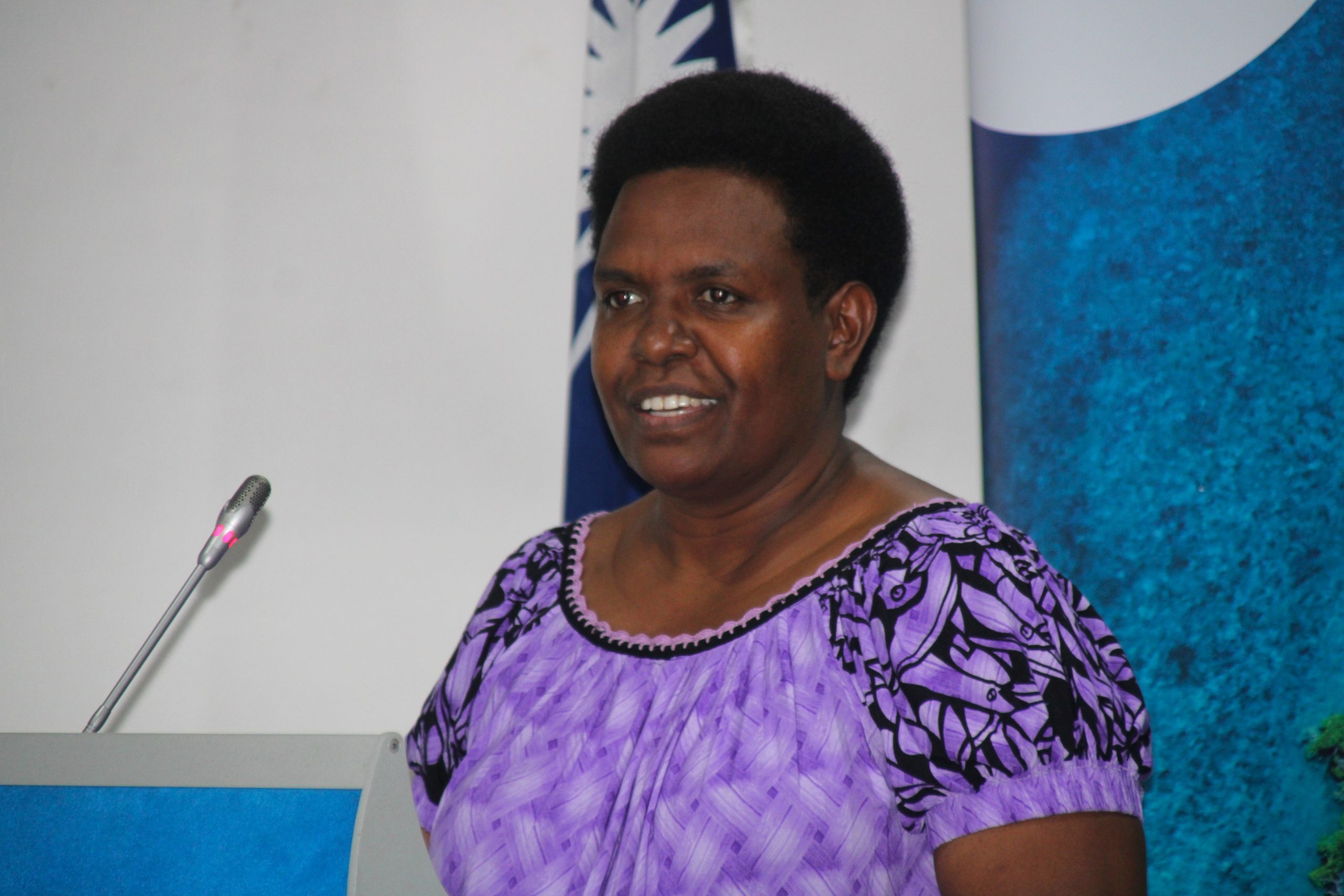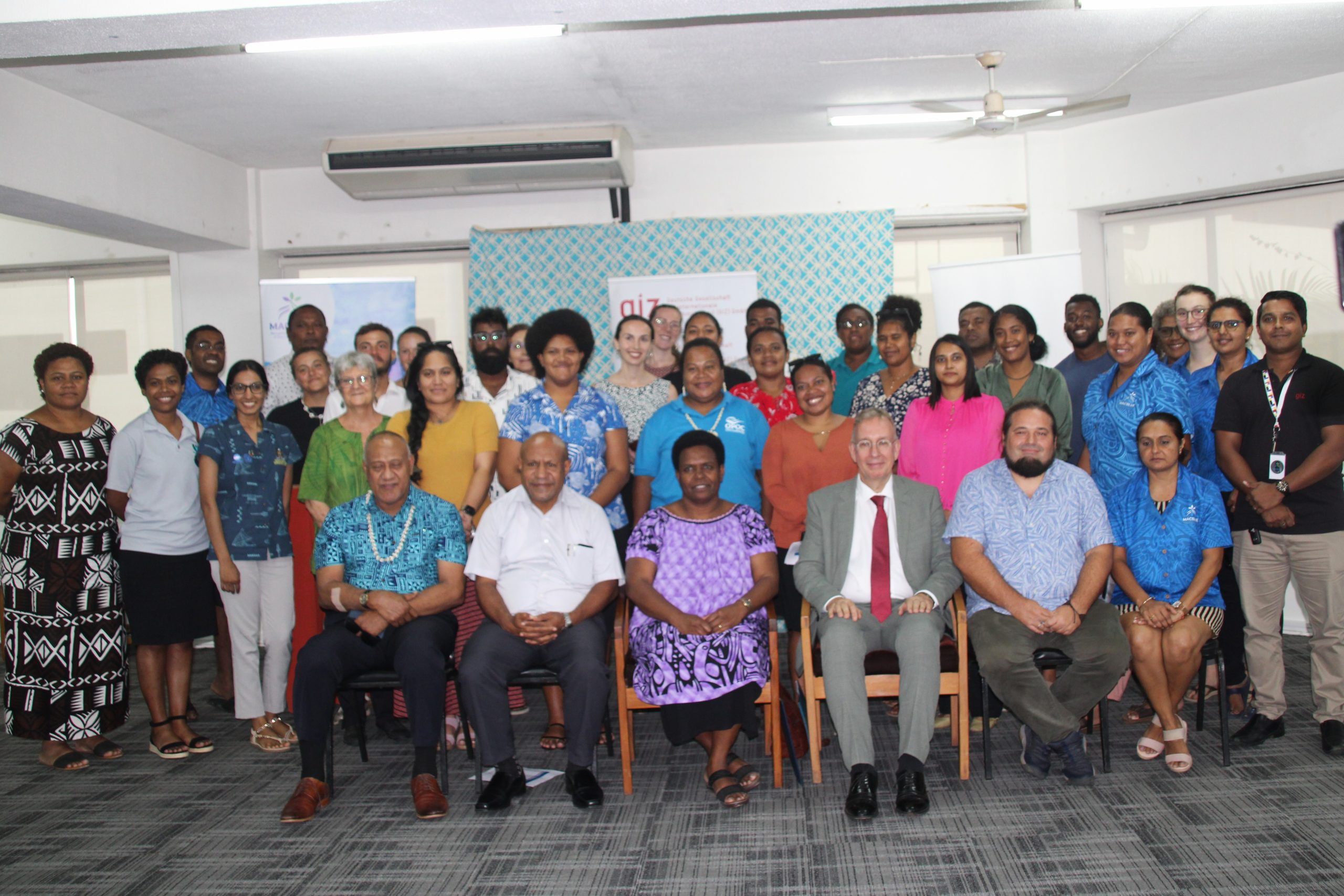On Friday, 01 March, World Seagrass Day was celebrated in the capital of Fiji to emphasise the critical role of seagrass ecosystems in sustaining biodiversity and mitigating climate change.
German Ambassador to Fiji, Dr Andreas Prothmann described seagrass as the “lungs of the ocean”, stressed the significance of seagrass conservation for Pacific Island nations, particularly in sustaining coastal fisheries and achieving climate mitigation goals outlined in the Paris Agreement.
“Seagrass ecosystems are particularly important in the Pacific, given that a key feature of many of our island communities is their reliance on coastal fisheries for sustenance and income,” Dr Prothmann said.
“Seagrass meadows help mitigating climate change by sequestering carbon dioxide (CO2) from the atmosphere and the ocean and storing it in their soils for a very long time.
“Their conservation is crucial for the achievement of the mitigation goals of the Paris Agreement on Climate Change.”

He highlighted the unique biodiversity supported by seagrass ecosystems, and the connection between the conservation of seagrass and the protection of marine species such as turtles.
“One turtle eats up to 2kg of seagrass a day. So, if we want to conserve turtles, it is crucial to protect our seagrass meadows.
“It is pivotal that we raise the profile of seagrass ecosystems and their role in climate change mitigation as well as providing ecosystem goods and services.”
The German Government through the Federal Ministry for the Environment, Nature Conservation, Nuclear Safety and Consumer Protection (BMUV) continuously support the Management and Conservation of Blue Carbon Ecosystems (MACBLUE) project in Fiji, Papua New Guinea, Solomon Islands, and Vanuatu that underscored as evidence to their commitment to seagrass conservation in the region together with regional partners – the Pacific Community (SPC) and the Secretariat of the Pacific Regional Environment Programme (SPREP).
“We encourage our partners in the Pacific to anchor the importance of seagrass in national policies and priorities. Effective conservation strategies must be customised to the Pacific’s unique and specific economic, cultural, environmental, and technological contexts” he said.
Dr Prothmann also recognised the participation of women in the conservation efforts of seagrass in the Pacific.
“Women in fisheries, whether they are marine scientists, fisherwomen, or seafood vendors, are important stakeholders in the conservation efforts of coastal ecosystems. Therefore, their participation should be valued and appreciated.”
SPC Lands Resources Division Deputy Director, Florence Rahiria reiterated the importance of seagrass ecosystems and called for collective action to protect them whilst stressing the need to raise awareness about the value of seagrass and advocating for traditional knowledge to be integrated into conservation efforts.
“Seagrasses are not merely submerged vegetation; they are intricate ecosystems that harbour a plethora of marine life, mitigate climate change and provide vital services to coastal communities,” Rahiria said.
“Therefore, it is incumbent upon us to amplify their significance, educate our communities, and advocate for their protection.”

She underscored the MACBLUE project’s efforts in utilising advanced remote sensing technology to monitor and protect mangrove and seagrass habitats across the Pacific region.
“Within MACBLUE the framework of MACBLUE, SPC is tasked with the digital measurement, reporting, and verification of mangrove and seagrass coverage, utilising advanced remote sensing products developed through Digital Earth Pacific.”
She stressed the urgency of addressing threats such as coastal development, nutrient runoff, and land reclamation, which contribute to the loss of seagrass beds in many Pacific Islands.
Moreover, the Deputy Director called for a shift in marine conservation efforts, urging stakeholders to prioritise seagrass ecosystems alongside coral reefs while highlighting the invaluable role of traditional knowledge in managing these ecosystems, urging for its incorporation into modern conservation practices.
“Marine conservation across the region overwhelmingly focuses on coral reefs, with seagrass ecosystems marginalised in conservation legislation and policy.
“Traditional knowledge is proving to be a powerful tool for managing these ecosystems, often surpassing modern approaches. This is a testament to the deep connection between Pacific Islanders and their environment.
“Therefore, let us heed the call to action of this World Seagrass Day! Whether it is adopting sustainable practices, supporting research, or advocating for change, every action counts.
“Our individual and collective contributions hold the power to effect transformative change and secure the future of seagrass ecosystems.
“Let’s be inspired by the unyielding spirit of seagrasses, their roots firmly planted, yet adapting against challenges. Together, let’s become stewards of our oceans, guardians of biodiversity, and true champions of sustainability,” she said.
The United Nations General Assembly adopted World Seagrass Day on 23 May 2022 to raise awareness and recognise the role of seagrass ecosystems.













